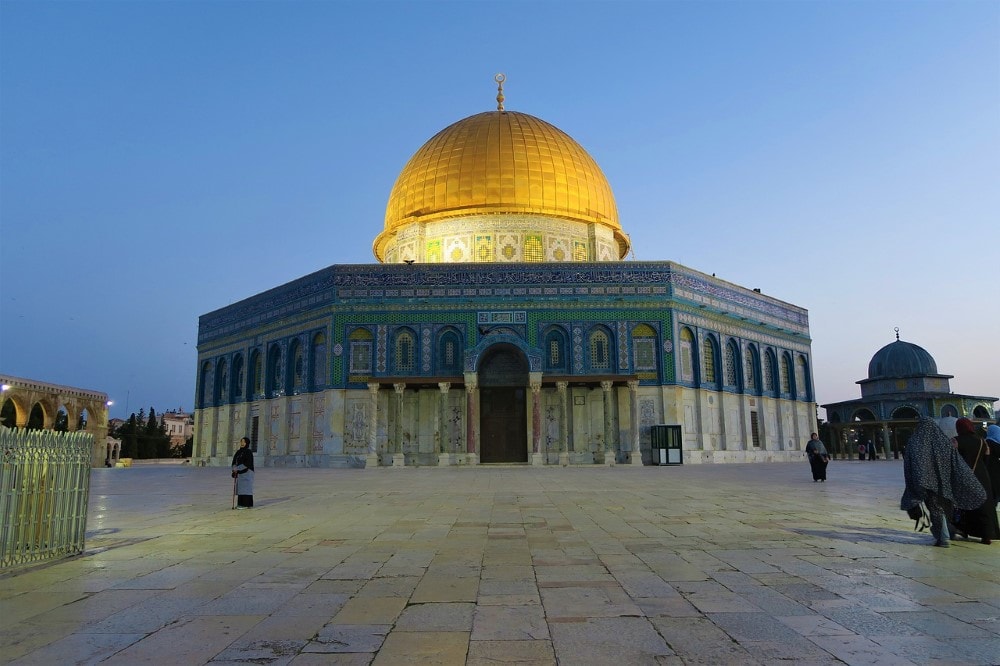Islamist group Hizb ut-Tahrir is attracting more followers, will ultimately wage violent jihad in Jerusalem, Israeli experts warn.

Most Israelis paid little attention to the angry protest against France on Temple Mount last week. The radical group that organized the rally, Hizb ut-Tahrir, largely operates under the media radar. However, experts who closely monitor extremists in Jerusalem say that the movement poses a growing threat to Israel.
Israeli security officials warn that Hizb ut-Tahrir’s local popularity is rising. It already has tens of thousands of supporters in East Jerusalem and runs branches in and around the city, Israel Hayom daily reported.
Notably, the vision of this global Islamist movement resembles the agenda of ISIS and Al-Qaeda. The group’s ultimate goal is to unite all Muslims under an Islamic caliphate, the Counter Extremism Project (CEP) says.
Hizb ut-Tahrir, which was founded in Jerusalem in the 1950s, claims to be non-violent. However, activists affiliated with the movement were linked to acts of violence worldwide, CEP says. In recent years, British members of the group reportedly joined ISIS and other radical organizations.
Moreover, Hizb ut-Tahrir endorses attacks on Jews and a violent jihad against Israel, CEP warns. Its track record includes Antisemitic rhetoric and support for Palestinian suicide bombings. In 2003, a British citizen associated with the group tried to blow himself up in Tel Aviv.
The movement’s hostile attitude is epitomized by the Palestinian leader of its Australian branch. Ismail Wahwah has called for Israel’s destruction via violent struggle against the Jewish State, researcher Ran Porat says. Most recently, Wahwah condemned Gulf countries for making peace with the “evil state of Israel.”
Transition to violent jihad?
Hizb ut-Tahrir has been banned in many countries but continues to operate freely in Israel. The security services opposed calls to outlaw it, arguing that monitoring the group would be harder if it operated underground. But some experts believe that this could be a grave mistake.
The movement’s influence in Jerusalem and the West Bank is far-reaching, says David Koren, an expert on Arab affairs in the capital. The key question is whether and when it will shift from words to actions to promote its vision, he told Israel Hayom.
Brig. Gen. (res) Baruch Yedid is also concerned that Hizb ut-Tahrir will transition into a full-fledged jihadist outfit. Ultimately, it may not settle for spreading ideas and proceed to build ties with global jihad groups and set up terror cells, he warns.
Yedid notes that the movement is already resorting to violence to enforce its beliefs. Group members have beaten up youngsters drinking alcohol and immodestly dressed women, he said.
But Hizb ut-Tahrir’s dangerous radicalism could lead to more sinister actions, as the recent protests against France hinted. A Jerusalem preacher affiliated with the group told followers that the beheading of a French teacher was a “great honor” for Muslims. Other spiritual leaders voiced similarly disturbing sentiments.
Notably, Israel already faces growing hardline activity in Jerusalem by a hostile Turkey. However, Hizb ut-Tahrir could prove even more dangerous as it works to turn the capital into a hotbed of radical Islam. As such, this threat must be watched very closely, to avoid surprises like the recent attack in Vienna.


